Introduction
Pakistan, like the rest of the world, is grappling with the challenges of packaging waste management. The country’s packaging industry is growing rapidly, driven by a growing population, urbanization, and a thriving e-commerce sector. However, this growth comes with a significant environmental cost. The traditional linear packaging model, which involves extracting, processing, using, and discarding resources, has led to a staggering amount of waste. In response, circular packaging solutions have emerged as a sustainable alternative. In this blog, we will explore the concept of circular packaging, its benefits, and the potential for circular packaging solutions in Pakistan.
What is Circular Packaging?
Circular packaging is a regenerative and restorative approach to packaging design. It seeks to redefine the traditional packaging model by designing out waste and pollution, keeping products and materials in use, and regenerating natural systems. Circular packaging solutions aim to create a closed-loop system where materials are constantly cycled back into the economy, reducing the need for virgin resources and minimizing waste.
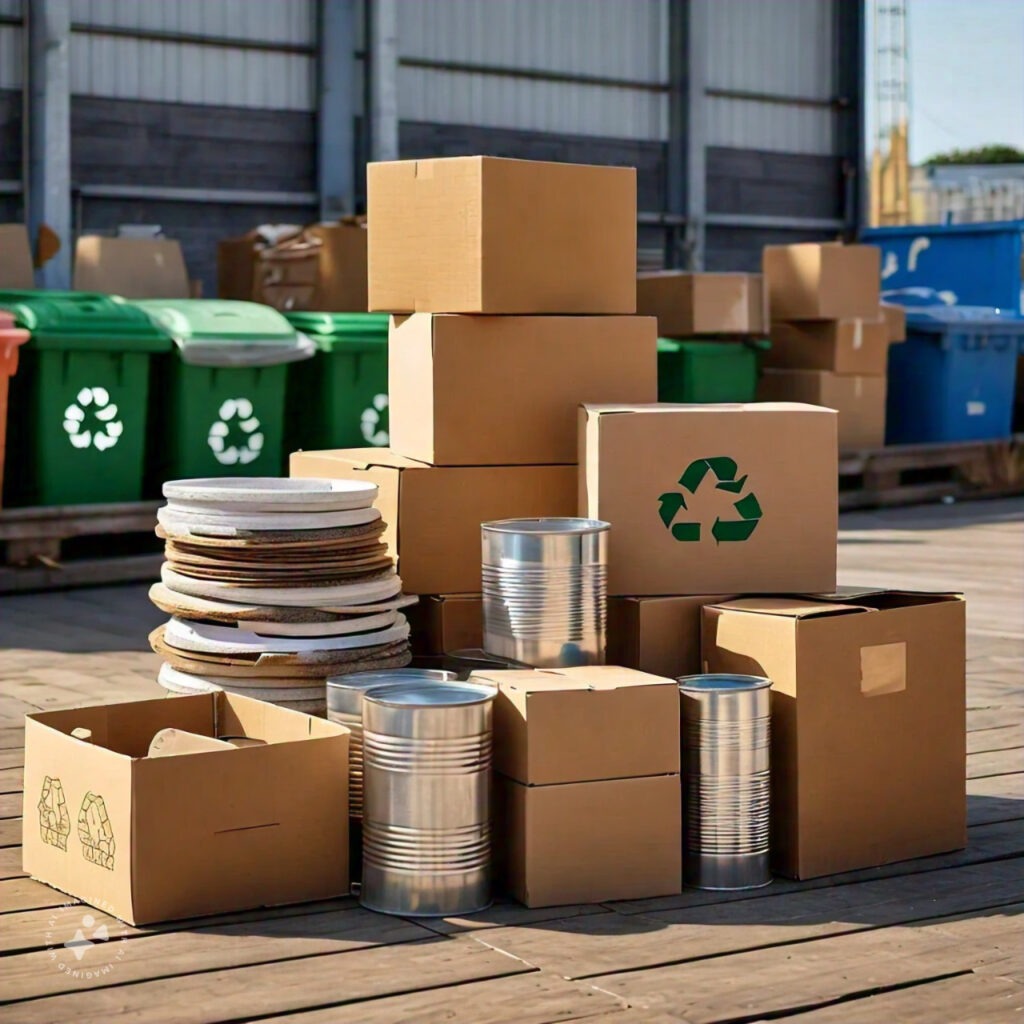
Benefits of Circular Packaging
- Reduced Waste: Circular packaging solutions offer a revolutionary approach to waste reduction, significantly reducing waste by designing products and packaging that can be reused, recycled, or biodegradable. In fact, this innovative approach can lead to a substantial decrease in packaging waste, thereby minimizing the environmental impact of consumer goods. Moreover, circular packaging solutions can also promote sustainable consumption, consequently reducing the demand for single-use plastics and other non-essential materials. Furthermore, by designing products and packaging with recyclability and biodegradability in mind, companies can significantly reduce waste and, ultimately, contribute to a more circular and regenerative economy.
- Conserved Resources: By keeping materials in use, circular packaging reduces the demand for virgin resources, conserving natural resources for future generations.
- Lower Carbon Footprint: Circular packaging solutions often involve local and regional supply chains, reducing transportation emissions and carbon footprint.
- Job Creation: As we transition towards a circular economy, it has the potential to create new job opportunities in areas such as product design, remanufacturing, and recycling. Moreover, this shift can also lead to the emergence of new industries and business models, thereby creating a ripple effect in the job market. Additionally, the circular economy can foster innovation and entrepreneurship, consequently leading to the creation of new employment opportunities in fields such as sustainable manufacturing and waste reduction. Furthermore, this new economic paradigm can also lead to the upskilling and reskilling of workers, ultimately resulting in a more diverse and resilient workforce.
- Cost Savings: Circular packaging solutions can help businesses reduce costs associated with raw materials, waste management, and regulatory compliance.
- Improved Brand Reputation: Companies that adopt circular packaging solutions can enhance their brand reputation and appeal to environmentally conscious consumers.
- Compliance with Regulations: Circular packaging solutions can help businesses comply with emerging regulations and standards related to packaging waste and sustainability.
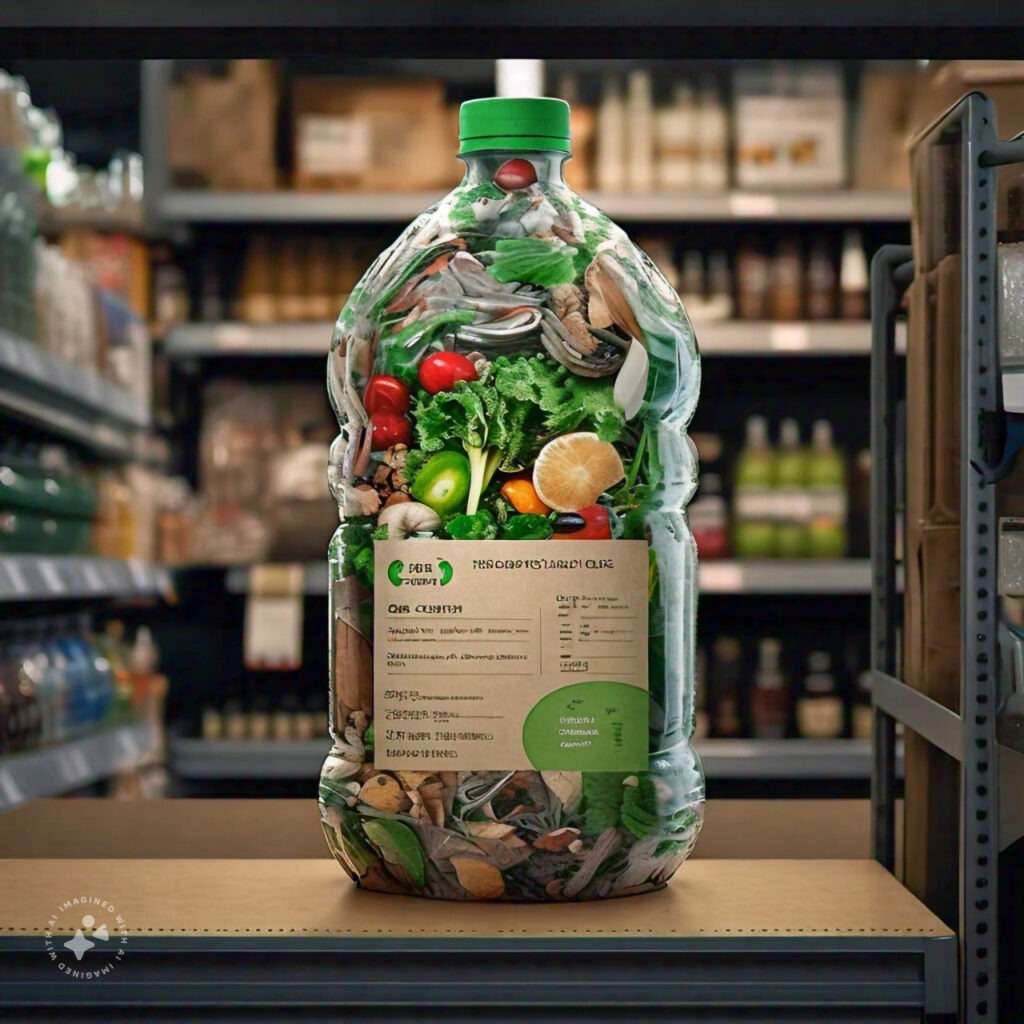
Circular Packaging Solutions in Pakistan
Pakistan’s packaging industry is poised for a circular revolution. With a growing population and increasing demand for sustainable solutions, the country is ripe for innovation. Here are some potential circular packaging solutions for Pakistan:
- Bioplastics: Companies produce bioplastics from renewable biomass sources like corn starch, sugarcane, or potato starch, providing a sustainable alternative to traditional plastics. By composting bioplastics, we can reduce waste and pollution.
- Recyclable Materials: Moreover, designing packaging with recyclable materials such as paper, cardboard, and glass can significantly reduce waste and, subsequently, increase recycling rates. Furthermore, this approach can also lead to a substantial decrease in landfill waste and, ultimately, contribute to a more sustainable future.
- Reusable Packaging: Not only can implementing reusable packaging solutions such as returnable crates, containers, and bags reduce packaging waste, but it can also lower costs significantly. Additionally, this approach can lead to a substantial decrease in raw material consumption, thereby conserving natural resources. Moreover, reusable packaging solutions can be designed to be durable and long-lasting, reducing the need for frequent replacements and, subsequently, minimizing waste. Furthermore, this sustainable practice can also contribute to a reduction in greenhouse gas emissions, ultimately leading to a more environmentally friendly and cost-effective supply chain.
- Refurbished and Recycled Materials: Using refurbished and recycled materials in packaging design can conserve resources and reduce waste.
- Sharing and Collaboration: Encouraging sharing and collaboration among businesses, consumers, and industries can reduce packaging waste and promote sustainable practices.
- Design Innovation: Developing innovative packaging designs that minimize material usage, reduce waste, and promote recyclability can help businesses adopt proper solutions.
- Circular Business Models: Implementing circular business models that promote product-as-a-service, sharing, and collaboration can help businesses reduce waste and promote sustainable practices.
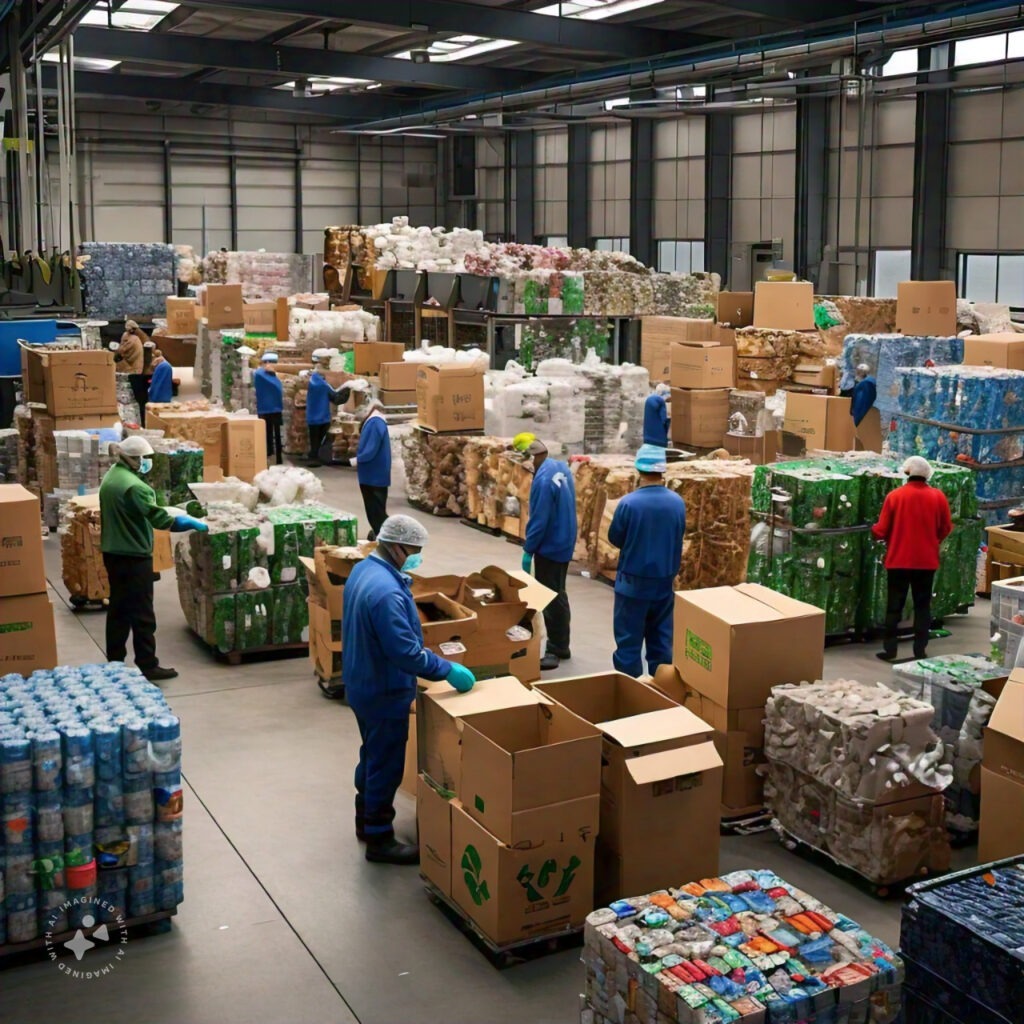
Challenges and Opportunities
While packaging solutions offer numerous benefits, there are challenges to overcome in Pakistan, and notably, the sector faces significant hurdles. Specifically, the high cost of raw materials and lack of advanced technology pose significant obstacles to growth and innovation. Moreover, the prevalence of informal packaging practices and inadequate waste management infrastructure further exacerbate the challenges. Additionally, the need for enhanced consumer awareness and education about sustainable packaging options remains a pressing issue. Nevertheless, despite these challenges, there are opportunities for innovation and growth in Pakistan’s packaging industry. These include:
- Infrastructure: Developing a robust recycling infrastructure and waste management systems is crucial for recycled packaging solutions.
- Consumer Education: Raising awareness about the benefits of circular packaging and encouraging consumer participation is essential.
- Regulatory Framework: Developing and implementing policies and regulations that support recycled packaging solutions is vital.
- Investment and Funding: Access to funding and investment is necessary to support innovation and scaling of packaging solutions.
- Supply Chain Complexity: Managing complex supply chains and ensuring adequate solutions are adopted throughout the value chain is a significant challenge.
- Scalability: Scaling recycled packaging solutions to meet the demands of a growing population and economy is essential.
Despite challenges, Pakistan’s packaging industry is poised for transformation. The sector offers opportunities for innovation and growth, driven by demand for sustainable packaging solutions. Companies can innovate and expand product offerings, capitalizing on the growing demand. E-commerce growth has also created new opportunities for packaging materials, driving business growth and development. Government initiatives support industrial development and exports, fostering a conducive environment for the packaging industry to thrive, leading to economic growth and job creation. The government, businesses, and consumers must work together to create a supportive ecosystem for circular packaging solutions.
Case Studies
- Nestle Pakistan: Nestle Pakistan has introduced bioplastic packaging for its products, reducing plastic waste and promoting sustainability.
- Unilever Pakistan: Unilever Pakistan has launched a recyclable packaging initiative, encouraging consumers to recycle and promoting a closed-loop system.
- Pakistan Packaging Council: The Pakistan Packaging Council has launched a circular packaging initiative, promoting sustainable packaging design and encouraging businesses to adopt circular solutions.
Conclusion
Circular packaging solutions offer a sustainable future for Pakistan’s packaging industry. By adopting circular design principles, reducing waste, conserving resources, and promoting sustainable practices, we can create a more regenerative and restorative economy. It’s time for Pakistan to embrace the circular packaging revolution and create a better future for generations to come.
Call to Action
- Businesses: Adopt circular packaging solutions, invest in sustainable design, and encourage supply chain partners to do the same.
- Consumers: Demand sustainable packaging, recycle, and participate in circular economy initiatives.
- Government: Develop and implement policies and regulations that support packaging solutions, invest in waste management infrastructure, and promote consumer education.
- Industry Leaders: Collaborate, share best practices, and drive innovation in packaging solutions.
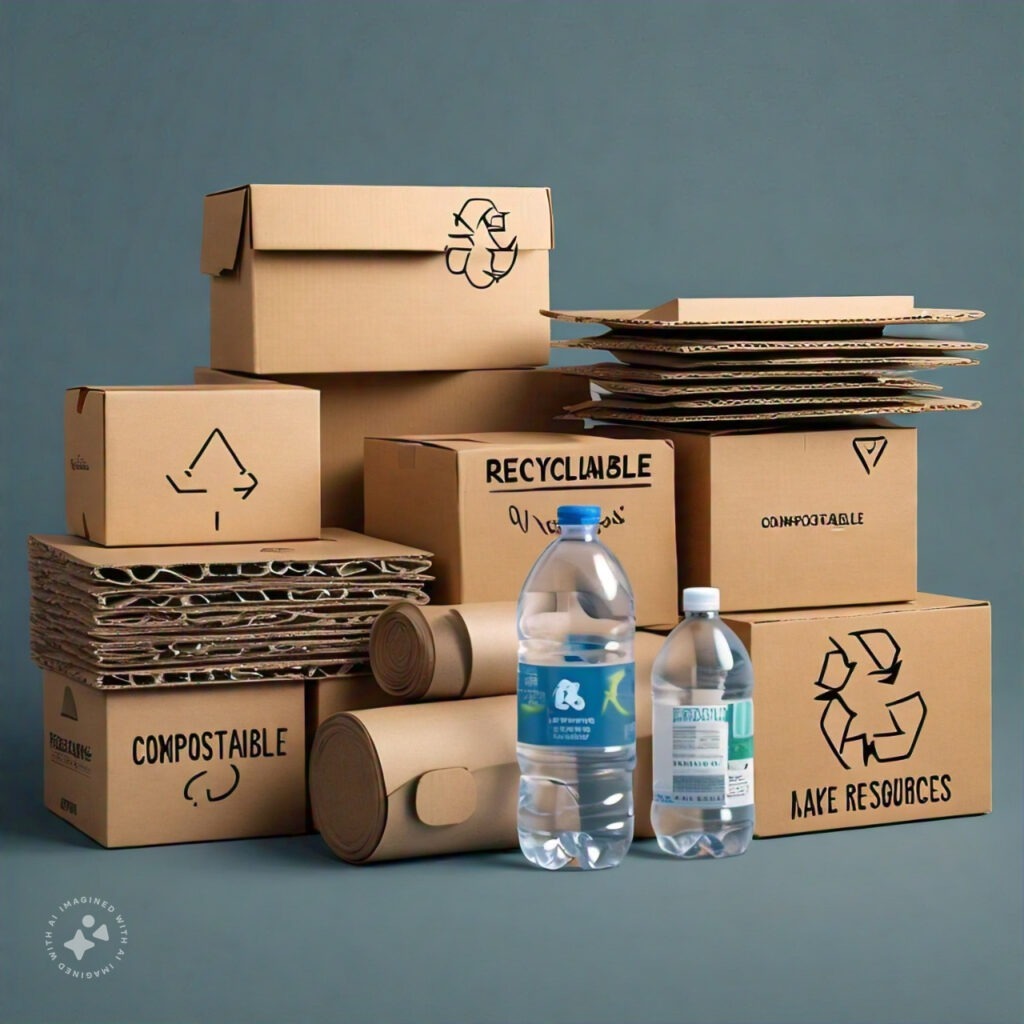


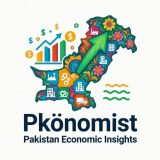
One comment
Business dicker
August 23, 2024 at 12:38 am
Business dicker Awesome! Its genuinely remarkable post, I have got much clear idea regarding from this post . Business dicker